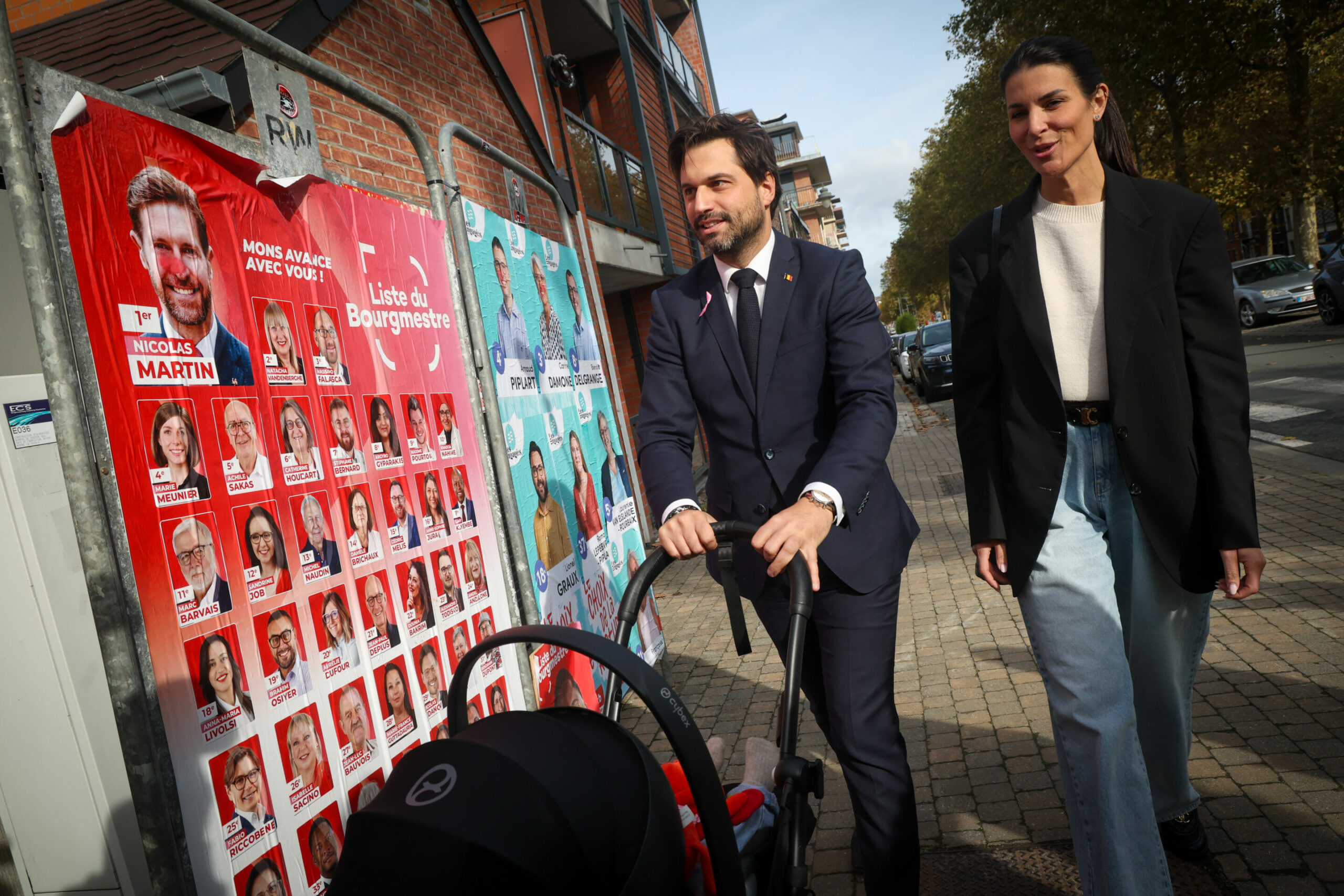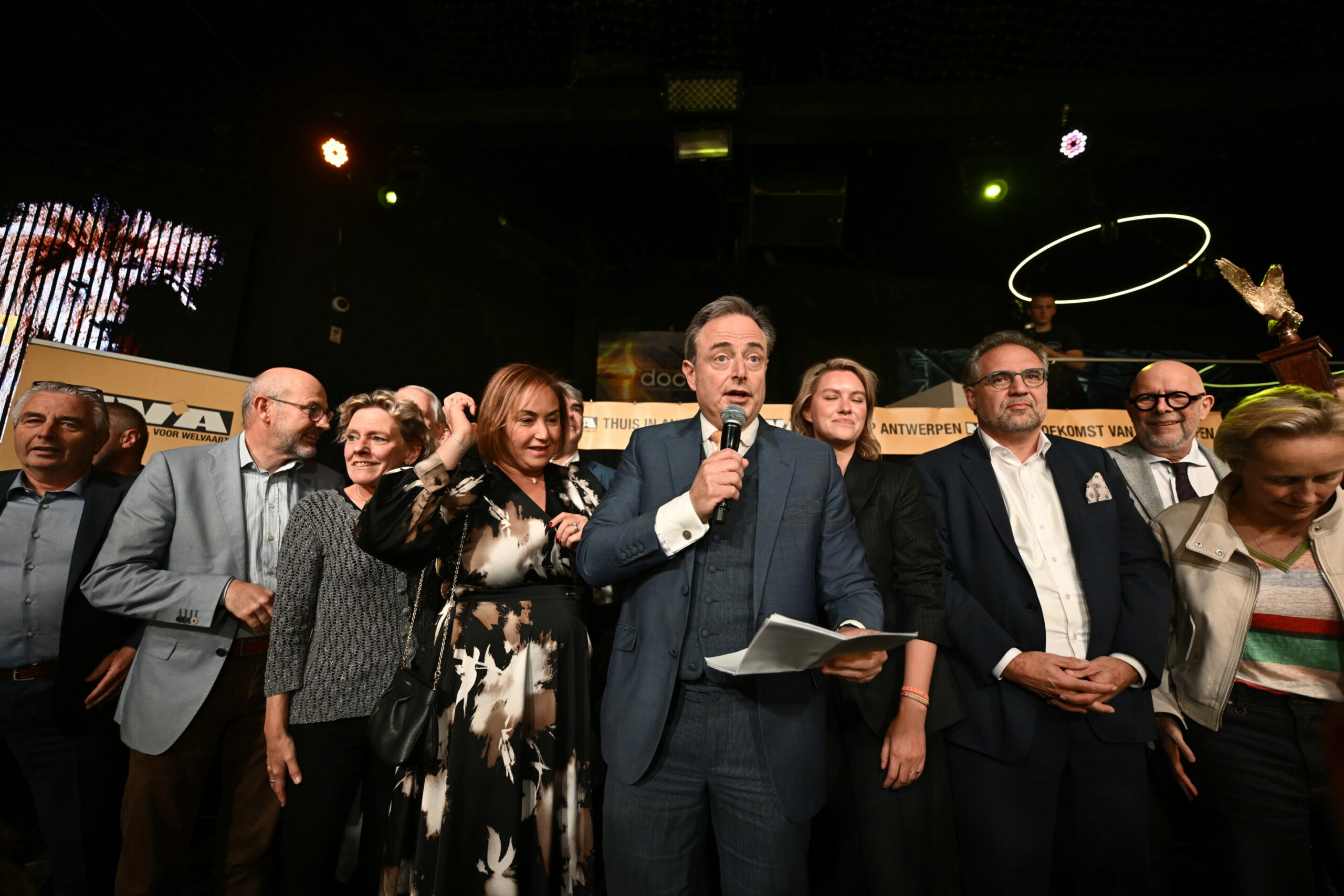As all votes have been counted after an eventful local election in Belgium, some clear trends emerged on Sunday evening. From voter turnout in Flanders to the expected "blue wave" in Brussels and Wallonia, the biggest general takeaway is that many predictions did not come true.
Many of the trends that were set during the federal elections did not materialise at the local level. Particularly in Francophone Belgium, back in June it looked like the tides were turning as centre-right parties MR and Les Engagés made significant gains, with MR even becoming the biggest party in Wallonia at the expense of the Socialist Party (PS).
On Sunday, MR's hope was to repeat that same success and perpetuate it at the local level in a "blue wave," as the party's Brussels leader David Leisterh described it. While the party can enjoy improved results nearly everywhere, the results were far away from a landslide victory for the French-speaking liberals.
Still, MR leader George Louis Bouchez referred to it as a "blue wave" and added that Sunday's results are "a real confirmation of MR's June results," he said. "It's a blue wave, and like all waves, it erodes all stones, even the biggest ones."

MR leader Georges-Louis Bouchez and his partner pictured at a polling station in Mons, Sunday 13 October 2024. Credit: Belga / Virginie Lefour
Yet on the night, PS managed to limit the damage and keep hold of its inner city strongholds in Brussels. The party continues to be punished at the ballot box, yet, overall, the socialists held their ground – especially in key places like the City of Brussels, where Mayor Philippe Close (PS) is likely to remain in his position.
"We remain the first in City of Brussels, Saint Gilles, Molenbeek, we are even in absolute majority in Koekelberg and Evere, and we are going to take the mayorship in Schaerbeek. The blue wave crashed into the red wall," PS leader Paul Magnette said on Sunday evening in Charleroi.
The Belgian Workers Party (PTB-PVDA) also gained a foothold in a few municipalities: in Molenbeek-Saint-Jean, the party even jumped to second place, behind PS-Vooruit. The same trend was observed in Saint-Gilles, with PTB surpassing Ecolo.
Competing in his first ever municipal elections, Team Fouad Ahidar continued their triumphal march in Belgian politics. The new left-wing party, which splintered off from Vooruit, won a total of around 30 seats in the seven Brussels municipalities that he ran in.
Meanwhile, the greens Ecolo and Groen did not manage to repeat their electoral successes of six years ago, when they went into ruling coalitions in 14 of the 19 Brussels municipalities and mayors in three communes (Forest, Ixelles and Watermael-Boitsfort).
On Sunday, the Belgian greens lost some five percentage points in most municipalities, but were able to hold on to the crown jewel in Ixelles, where mayor Christos Doulkeridis defied the odds by winning the most votes and was expected to retain his coalition majority with PS. However, despite the result, it emerged on Monday that Doulkeridis will lose his mayorship after being sent into opposition by a late-night PS-MR-Engagés coalition deal.

Ibrahim Donmez and Yildiz Yusuf (R) celebrate the results of Schaerbeek's French-speaking Socialist Party PS, on the evening of the local elections on Sunday 13 October 2024. Credit: Belga / Bruno Fahy
However, the biggest loser of the day on the Francophone side seems to be the centrist party DéFI, who lost support in almost every municipality and was even completely wiped off the map in Bernard Clerfayt's Schaerbeek. However, the party still managed to retain the mayorships of Auderghem and Woluwe-Saint-Lambert.
The composition of the 19 new municipal councils will also play a significant role at the negotiating table to form the government of the Brussels Region.
Flanders
In Flanders, the main shock came from the East Flanders municipality of Ninove where the "Forza Ninove" list of Vlaams Belang obtained an absolute majority of seats with 47.4%: 18 out of 35, enough to be able to take over the mayoralty without a partner – a first for the far-right in Belgium.

Antwerpen Mayor Bart De Wever delivers a speech at a meeting of the Antwerp branch of conservative Flemish nationalist party N-VA, on the evening of the local elections on Sunday 13 October 2024. Credit: Belga / Dirk Waem
In Antwerp, Bart De Wever's N-VA won the race: his party (37.2%) finished far ahead of radical left PTB-PVDA (20.2%). Meanwhile, Vooruit's Conner Rousseau and N-VA's Zuhal Demir did not manage to take the lead in their municipality, respectively in Sint-Niklaas and Genk.
These were the first elections where voting was not compulsory in Flanders, and many voters did not show up: the participation rate should be around 63% – at least 10%-15% lower than many experts had predicted.
Wallonia
In the south of the country, all eyes are mainly on the city of Mons (Hainaut), where the race for mayor between PS' Nicolas Martin and MR party leader Georges-Louis Bouchez is becoming a symbolic battleground between the parties.
With nearly all the votes counted, PS is holding on (44.9%), far ahead of Bouchez' list (28.3%). Expectations are also high in Charleroi, where years-long mayor and PS leader Paul Magnette will likely be handing over the sash to Thomas Dermine: PS is leading the almost complete results with 43.7%, the MR is capped at 19%, the PTB at 17.6%.
In Liège, where mayor Willy Demeyer (PS) could keep his position, the PS+ list is shrinking a little but remains in the lead with 29.3%, ahead of the MR at 20.2%. Meanwhile in Namur, where popular Les Engagés leader Maxime Prévot is mayor, his party's victory seems clear with 43% of the vote.
The article was updated at 12:35.

